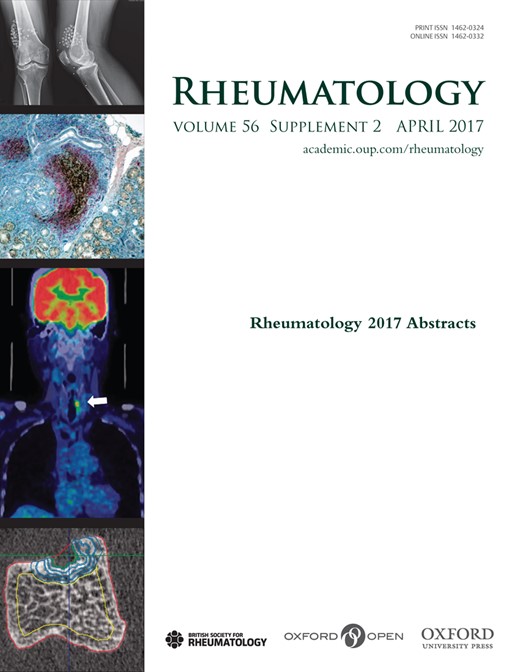-
PDF
- Split View
-
Views
-
Cite
Cite
Alice Malpas, Lauren Steel, Karen Mills, Himanshu Pathak, Karl Gaffney, 055. SWITCHING FROM REMICADE TO BIOSIMILAR INFLIXIMAB: AN EVALUATION OF EFFICACY, SAFETY AND PATIENT SATISFACTION, Rheumatology, Volume 56, Issue suppl_2, April 2017, kex062.055, https://doi.org/10.1093/rheumatology/kex062.055
Close - Share Icon Share
Background: TNF inhibitors have revolutionized the treatment of many rheumatic diseases and biosimilar products are now becoming established in clinical practice. Most studies show no significant differences in efficacy or safety between a biosimilar and the originator, however some physicians and patient advocacy groups have expressed concern about how interchangeable they really are. We evaluated efficacy, safety and patient satisfaction after switching from Remicade to an infliximab biosimilar in a cohort of patients with inflammatory arthritis in a real-world setting.
Methods: Consecutive patients with rheumatoid arthritis (RA) and axial spondyloarthritis (AxSpA) switching from Remicade to a biosimilar were assessed at baseline and after 3 months. DAS28, BASDAI, patient and physician opinion were recorded at each visit. Patient satisfaction with the switching process was evaluated via a questionnaire.
Results: Sixty-two patients were included; 45 RA, 17 AS, 40 female, mean age 63 yrs (SD 13.3), mean duration on Remicade 10.3 yrs (SD 3.1). At 3 months follow-up, the mean differences in DAS28 and BASDAI were 0.42 (95% CI 0.09, 0.75) and 0.12 (95% CI −0.61, 0.85), respectively. Fourteen patients (23%) self-reported waning efficacy with the biosimilar and 6 (10%) reported new side-effects. One patient reported improved efficacy. Three patients (5%) have reverted to Remicade due to loss of efficacy; all of whom had been in remission for >6 years. Of 44 patients who returned the questionnaire; 36 (80%) were satisfied with the information provided, 33 (75%) considered that they had adequate support during the process, 19 (43%) were concerned about the impact the switch would have on their disease and 16 (37%) self-reported a flare of disease. One patient would rather not have known about the switch. Overall satisfaction with the switching experience was rated as good or excellent by 29 patients (66%).
Conclusion: Switching from Remicade to a biosimilar was associated with a significant increase in disease activity at 3 months in patients with RA but not AS. Larger long-term studies are now required to evaluate this further. Patient satisfaction with the process suggests that this is an acceptable option for patients.
Disclosure statement: K.G.: Member of speakersण128; bureau: AbbVie, UCB, MSD, Pfizer. Grants/research support: AbbVie, Pfizer. A.M., L.S., K.M., and H.P. have declared no conflicts of interest.




Comments